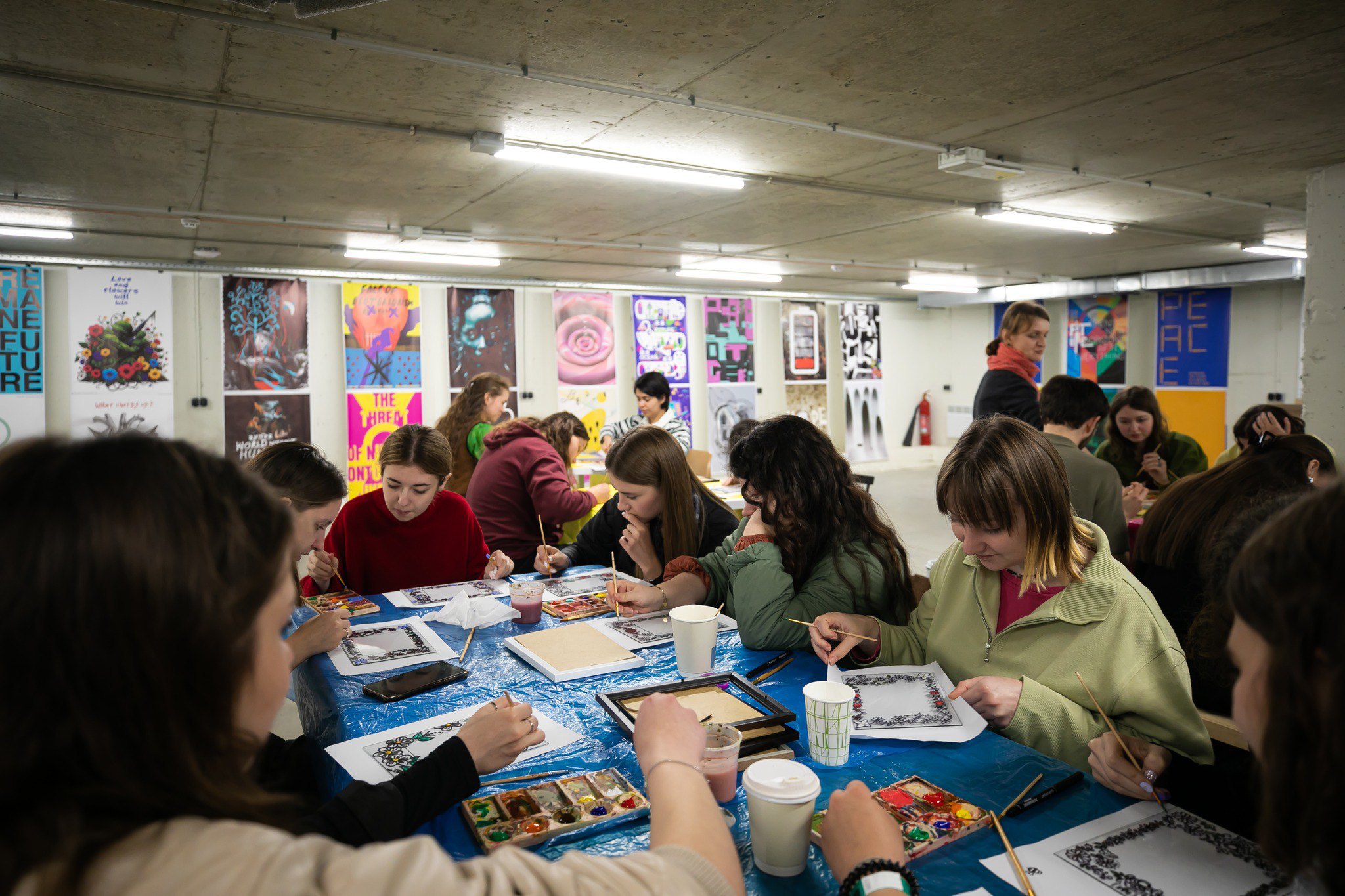Zoryana, Ulyana, what trends do you observe in the field of cultural education in terms of quality, the variety of specialisations, and how well curricula respond to real challenges in the cultural sphere?
Zoryana Rybchynska:
I’d like to begin by referring to what was discussed in the earlier texts of this series — for instance, how the community's efforts helped raise the issue of preserving and evacuating museum collections. Unfortunately, there is very little public discussion about the fate of educational institutions located near the front lines. And it’s not just about collections and libraries — it’s about people. Everything can be rebuilt, except people, and the communities that have developed around institutions over decades. Right now, due to the war, local cultural education environments are being destroyed every day. And the issue is not just about the relocation of certain institutions, but how that relocation is carried out.
I’m referring, in particular, to the recent case of the Kharkiv State Academy of Culture, which has effectively been shut down — even if, on the surface, it appears to be a merger. These so-called ‘mergers’ pose a serious threat because they dismantle ecosystems that have taken decades to grow. More broadly, when we talk about education as a social institution, we must realise that it operates on a long-term timeline. This is not about quick fixes — it’s about steady, long-term strategies.
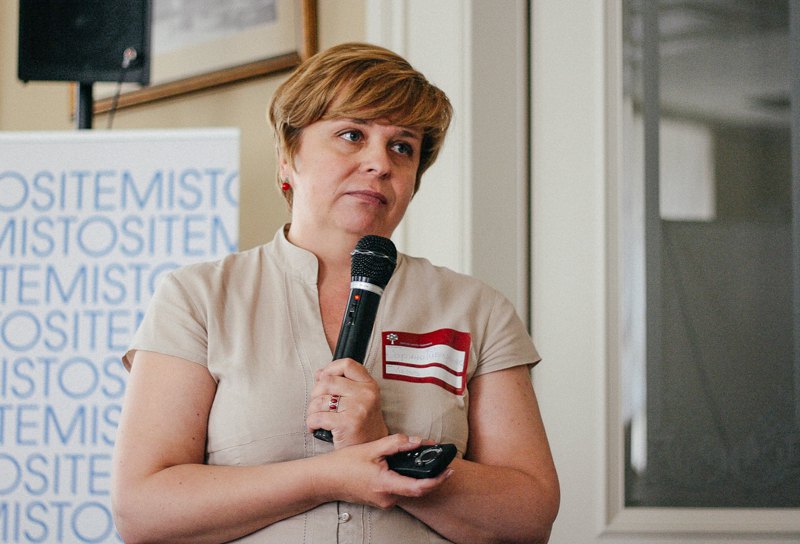
Unfortunately, public education in Ukraine has long survived not because of state policies, but due to the efforts of passionate educators. And the situation is only deteriorating: the level of bureaucracy in state universities is extremely high. Institutions that were originally established to support higher education reform are now among the main drivers of over-bureaucratisation. This includes, in particular, the National Agency for Higher Education Quality Assurance, where the accreditation process is so bogged down in red tape that many institutions struggle to get through it.
Ulyana Moroz: I completely agree with Zoriana. But despite the fact that teaching is truly challenging, I find working with young people incredibly inspiring. They are fantastic individuals — principled, patriotic, and they know what they want. I genuinely believe this generation will transform Ukraine for the better. But there are serious challenges. The number of young people is rapidly declining — demographically, we’re heading down a rabbit hole. So competition for students is and will continue to be extremely intense.
As for the education system itself — sadly, reform hasn't properly begun. Bureaucratisation is massive. And when changes do happen, they tend to come from the bottom up, not the top down. For example, when students at the Karpenko-Kary University started speaking out about harassment by lecturers — that was hugely important. The fact that such issues are finally being discussed is a critical step towards addressing the problem rather than covering up the symptoms.
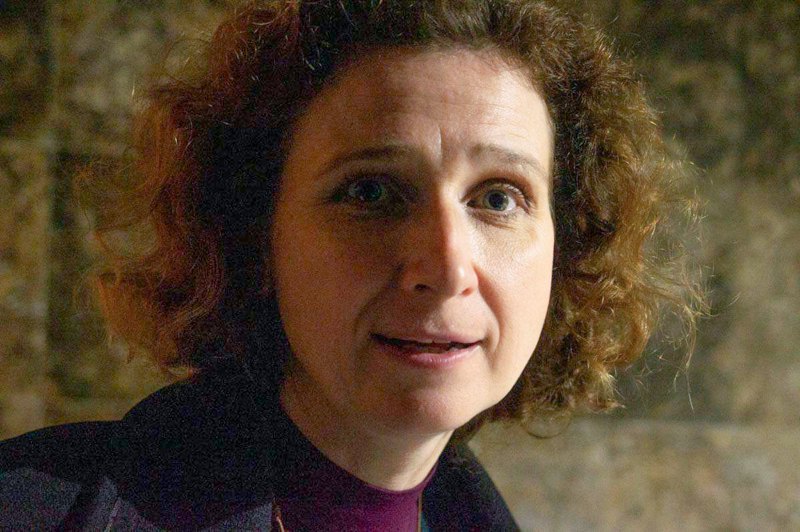
Working conditions and pay for lecturers are a separate issue. At a university, a quarter-time teaching post might earn just UAH 1,700. I myself work on a quarter-time contract, teaching students four hours each week. The system expects lecturers to pour their soul into students for that kind of pay. I do a lot of voluntary work, but the fact that higher education in Ukraine now runs on a kind of volunteerism is outrageous. If you work in education today, you're either a volunteer who needs a second job, or someone with nowhere else to go and no professional prospects.
What additional challenges and issues have the past few years brought, marked first by COVID and the shift to online learning, and then by the full-scale war?
U.M.: One important trend I see is the merging of several Ukrainian puppet theatre schools. The puppet theatre school in Kharkiv is going through a crisis; some people have relocated to Lviv, others from Dnipro to Kyiv. In Lviv alone, there are now six different puppet theatre training programmes.
What enables us to keep going despite the war and displacement? Firstly, the ability to work online and use all available tools and technologies. This format not only allows us to overcome distances and remain active, but also to support colleagues — professionally and emotionally.
The puppet theatre graduates from Kharkiv who now work with me in Lviv are no less qualified than local graduates. They are incredibly competent, focused, and resilient — their results speak for themselves. For me, this reflects tremendous flexibility, diligence, and an ability to adapt and thrive in even the toughest circumstances.
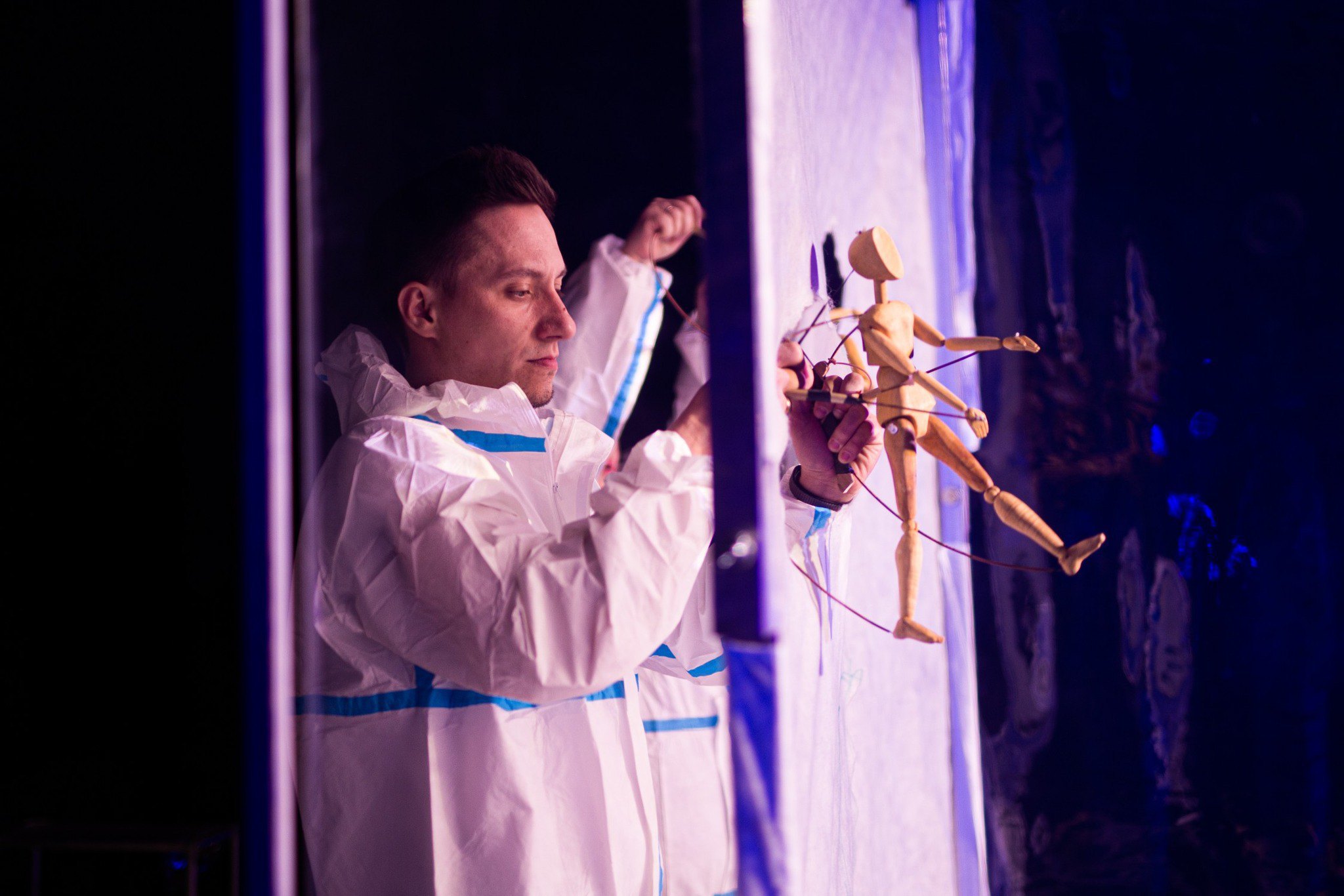
Z.R.: Covid — and later the full-scale war — have been enormous challenges for all of us in the education sector, both students and lecturers. These challenges are not just logistical or safety-related, but psychological too. Even universities that can still operate offline face many obstacles. But I agree with Ulyana — the need to work in hybrid formats has made us all more flexible and opened up spaces for collaboration. Many institutions have been able to build new international links and develop joint teaching formats. This has strengthened Ukrainian academic programmes, allowing us to invite foreign lecturers (both online and in person).
At UCU, I’ve seen a noticeable shift in teaching approaches over recent years. When I first entered academia, I couldn’t have imagined the scale of challenges we now face — dealing with our own trauma and supporting students going through immense hardship. No one prepared us for experiencing this level of collective loss. Last year was especially difficult — our team lost two students. These were among the most painful moments of the full-scale war for me. It’s a deeply intense and difficult experience, and we have to learn how to live with it and keep moving. We’re the adults in the room — so we have to know how to support both ourselves and others through these moments.
That’s why it’s so important for a university to be more than just a bureaucratic entity — it needs to be a genuine community. Unfortunately, when we talk about higher education in Ukraine, we rarely speak about the role of community around academic institutions. But it’s essential. Communities take years to build — and can be destroyed in an instant.
Now more than ever, we need these communities and support networks. They must be nurtured around universities just as they are around cultural institutions. Today, education — especially in wartime — is often about creating a safe space for shared experience and reflection. As a teacher, your role is to create an intellectually and psychologically comfortable space, and to sustain deep conversations within it. That’s a huge responsibility, and it drives us to carry on despite fatigue and the challenges we face.
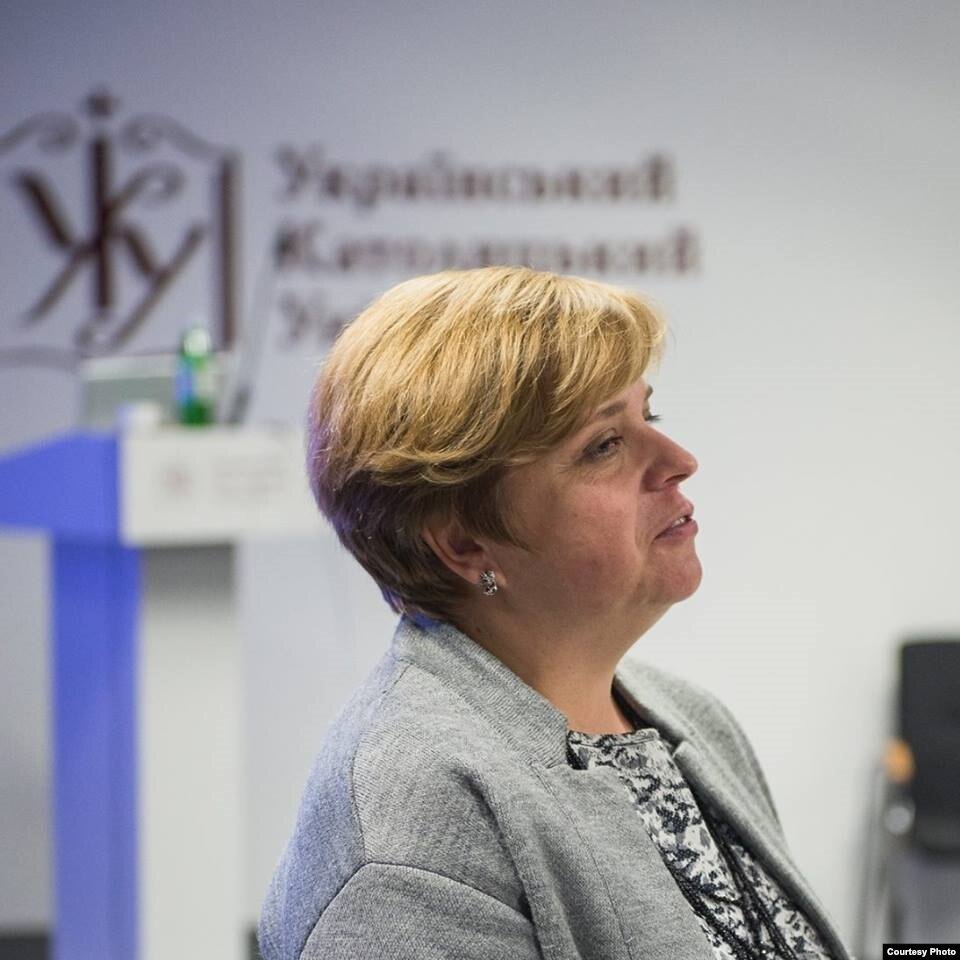
Another aspect of our work — both inspiring and challenging — is collaborating with guest lecturers (we have quite a few at UCU). But when I sit down as head of the Cultural Studies programme to prepare budgets and invite lecturers, I always have to start the conversation by apologising for the poor pay. Because I understand just how much energy professional teaching requires — and how inadequately it is rewarded. This reality sometimes turns teaching (like working in culture) into an unhealthy form of volunteering — and that’s not how it should be.
So what keeps us going? It’s the students. Intelligent, value-driven, open-minded, and full of talent — they’re the reason we stay in this profession.
We’ve talked about the roles and functions of education and educators, about students, institutions, and the communities around them. But another important actor in this field is the state. In your view, what is the state’s current approach to the development of the education sector, particularly cultural education?
Z.R.: This is a very complex issue. In my view, the problem isn’t so much with education reform itself, but with the outdated model of how education is managed. We sorely lack competent managers who truly understand contemporary education governance. We love talking about “innovative education” — but for education to be innovative, there must first be a strong foundation of tradition. That takes time. But here, it’s always the same story: “We’ll tear everything down and build something new.” Naturally, this creates resistance among educators, especially when the meaning behind these “innovations” is unclear. Government officials change rapidly, and the “innovations” change just as quickly.
Unfortunately, there is currently no team at the state level with a long-term vision for education. Everyone’s just putting out fires — there isn’t even a proper analysis of the problems in the sector, which should be the first step in any meaningful reform.
A small example: last year, the Ministry introduced a new list of academic specialities to align with European standards. Unfortunately, some disciplines disappeared, others were merged — and this has raised many questions. Why were they merged in this way? In the European classification, for example, cultural studies belongs to the social sciences and is grouped with sociology — and there’s a deep academic tradition behind that. But in our new classification, cultural studies remains part of the humanities and has now been combined with museology — so the new degree title is “Cultural Studies and Museology”. What does this mean? What will the consequences be for the sector? No one can explain. And there are countless examples like this. New ideas appear, “innovations” are implemented, universities obediently rewrite their programmes (otherwise they won’t receive state funding) — but do things really change at a fundamental level? At the moment, it doesn’t seem so.
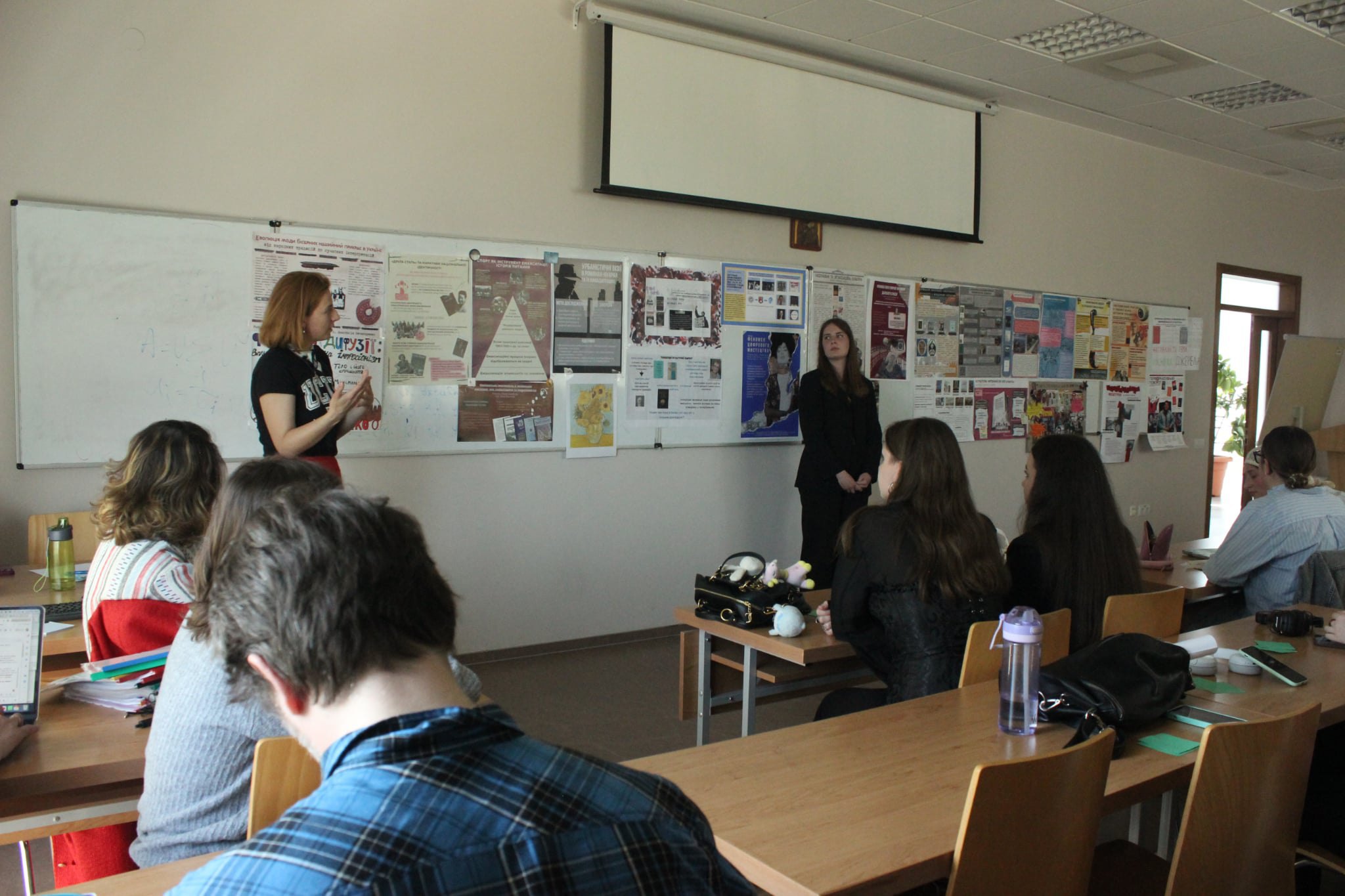
That’s why I don’t really believe in state-led education reform — I believe much more in bottom-up transformation processes that are supported from above. At one point, it was proudly announced that universities had been granted autonomy. But did they actually take it? Because autonomy means a university must evolve from a feudal structure — where a semi-divine figure sits at the top and everyone bows to them — into a democratic and responsible intellectual community. Governance models need to change — to become efficient and human-centred.
By contrast, private universities that are more independent from state control really do have a chance at making quality changes. And we’re already seeing successful cases. Besides the Ukrainian Catholic University, where I work, I would also highlight the Kyiv School of Economics and the Kharkiv School of Architecture.
Where else do I see hope? In partnerships between formal and informal education. For example, Uliana not only teaches — she also runs a theatre. That means her students could already be working with other theatres in Lviv and across the region. Just imagine the amazing projects they could develop — and the kind of graduates we’d have, students who by their fourth year already know where they’ll be working. That would transform the entire sector. And it only takes the goodwill of a few people. We just need to let go of the fear of losing control and delegate responsibility to those who truly know what they’re doing.
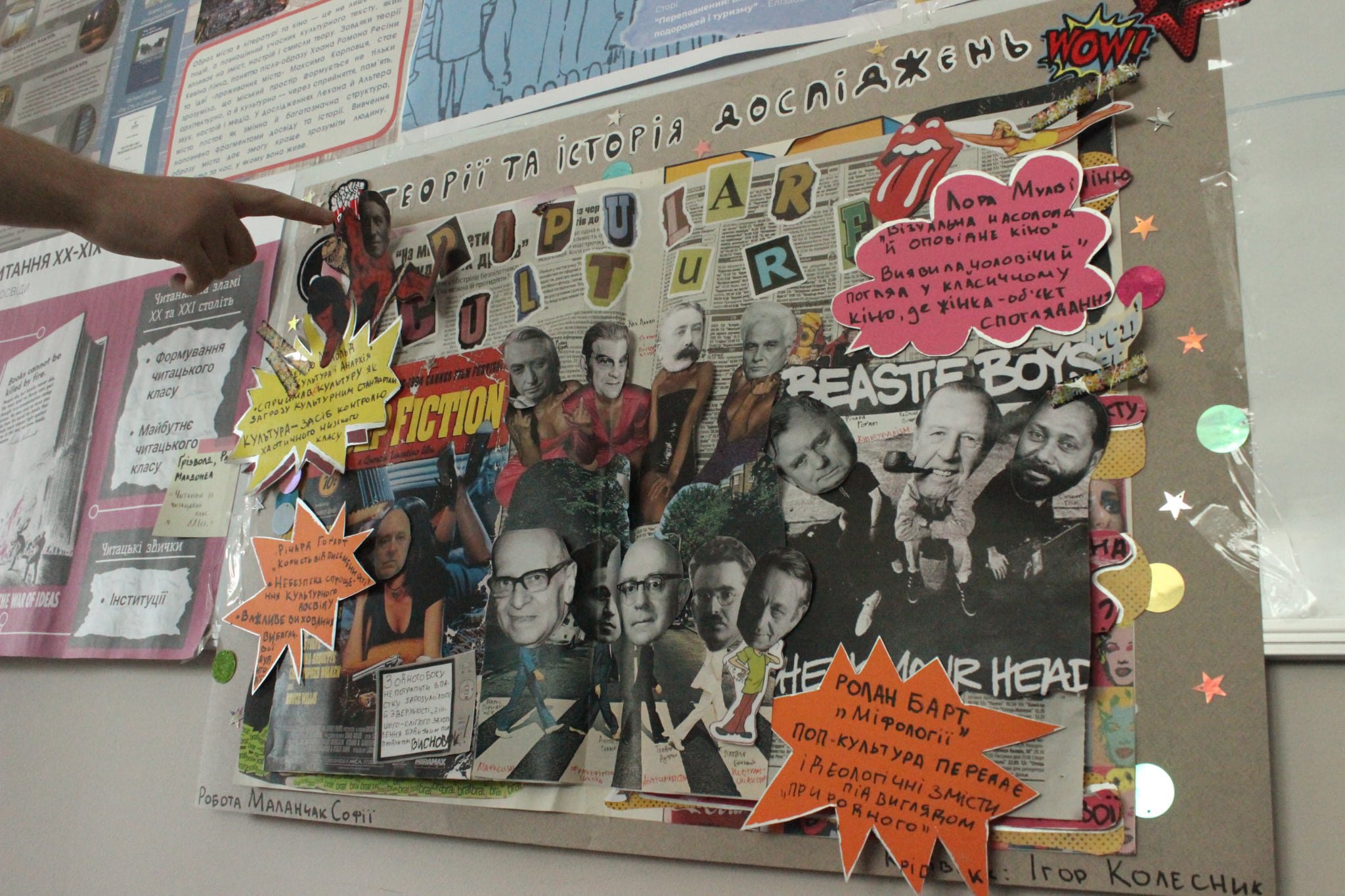
U.M.: Let me share a bit about my experience running a theatre, which I’ve now been doing for seven years. The previous director had been in charge for 37 years, so I walked into a vertically structured, Soviet-style institution where everyone was afraid to speak up. I came in full of energy, determined to reform the place — I wanted to give people freedom and establish human-centred values and rules.
Unfortunately, my conclusions so far are quite sobering. Many people simply weren’t ready for a democratic approach — they saw freedom as a licence for impunity, rudeness, and laziness. They didn’t want reforms — they did everything to stop me. In the end, I had to part ways with 41 of the 50 employees. Over the years, I’ve gone through a long process of learning and self-improvement, but I haven’t abandoned my goals or values. My experience doesn’t mean reform is impossible — it just means you have to understand the sheer inertia you’re up against and be prepared for it.
When it comes to reforming an entire sector — it’s even more complex.
The most important starting point is a thorough analysis of the current state of education. Only then can we begin to think about what kind of outcomes we want. And here it’s helpful to ask: Who is education actually for? That brings us back to the idea of human-centredness — because at the heart of all these processes and policies must be the individual.
In your view, how well does cultural education currently align with actual labour market needs? What kinds of professionals do cultural institutions need, and where do young graduates go to work? On the one hand, we hear constant demands for better pay — and on the other, there’s a reported shortage of professionals in the field. How can this gap be bridged?
Z.R.: The cultural job market is chaotic and poorly structured. No one has ever really analysed it, so we know very little about it in terms of hard data and trends. Is the cultural sector in Ukraine even structured as a job market? Does it clearly articulate its needs to the education system? No. Does the state gather data on this? Do we know which specific professionals we need and in what numbers? Not always.
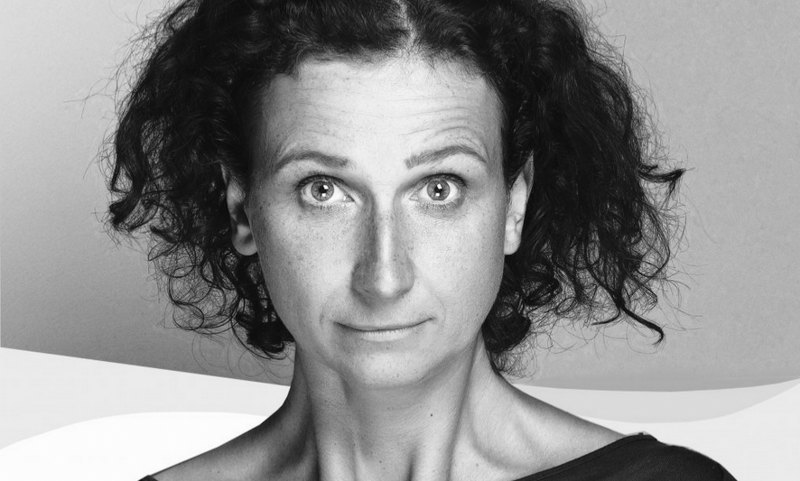
U.M.: At our theatre, we came to a realisation: if we need puppet theatre actors, we’ll have to launch a course ourselves at the university. We went through three circles of bureaucratic hell just to get accreditation — so we could issue degrees not in “drama and film acting”, but specifically in “puppet theatre acting”.
But of course, a theatre needs more than just actors. And here again we face huge issues around pay and working conditions. A couple of years ago, some students from UCU came to me. I told them, “I have a position for a head of marketing and promotion — but the salary is UAH 10,000.” They said goodbye on the spot. Here’s the dilemma: I want my employee to speak English, to write grant proposals, to understand the value of art and be able to communicate that value to different audiences. And young people want to earn a decent wage. There’s a huge gap between our expectations. So what do I do? I take theatre studies graduates from university, train them on the job, and they get their first work experience in the cultural sector. But it’s a very fragile balance.
How can this gap be bridged and the cultural sector revitalised for the future? Because at the moment, it seems that for young professionals, working in culture is not an attractive option: a lot of responsibility and effort for very little pay, with extremely vague career prospects.
U.M.: Learning to make lemonade out of lemons — that’s the only model I can see here. I tell my young team members that by working with me and our team, they can gain a lot of valuable experience. And the starting salary of UAH 10,000 is a bonus.
Z.R.: Cultural institutions must be proactive, seek partners and build alliances. Competition for funding and students will only increase, so simply replicating the same practices will no longer work — change and growth are inevitable for everyone.
